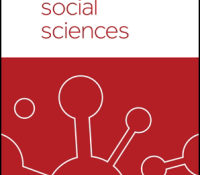tandfonline.com har udgivet en rapport under søgningen „Teacher Education Mathematics‟: Abstract Abstract This essay examines how the US government intelligence community (IC) as well as the public and commercial sectors contributed demand-pull, in different ways, for an unregulated, privatized Internet. Demand-pull entails more demand than supply, or a shortage in supply (such as a shortage in networks and thus a demand-pull for them). It is argued that an excessive supply of Cold War era IC spy data, which required high-speed data processing, incentivized ARPANET expansion. In the public sector, people wanted expanded networks for personal computing and in the commercial sector there was demand-pull for unregulated networks that bootlegged and gifted PROMIS derived software could be harnessed to. The IC demand pulled for their own cloned and separate networks, while… Continue Reading →
Like this:
Like Loading...
eric.ed.gov har udgivet: The challenges of education in the era of the industrial revolution include disruption 4.0, 21st-century skills, globalization, and global competition. Chemistry is a subject that needs to be developed in order to improve the educational system in the era of disruption. The purpose of this research is to identify and analyze the needs of the media-based chemistry study ICT at grade X redox materials in State Senior Highschool 8 Semarang during the disruption. The method used in this research is a descriptive qualitative method which consists of the study of literature and the study of the field. Method of data collection is done through observation, question form, documentation, interview teachers, as well as interview students. This research instrument consisting of a sheet of observation, question form, and… Continue Reading →
Like this:
Like Loading...
eric.ed.gov har udgivet: Today, mathematics education faces two major challenges: raising the floor by expanding achievement for all, and lifting the ceiling of achievement to better prepare future leaders in mathematics, as well as in science, engineering, and technology. Many students lack access to higher-level mathematics courses and teaching at all levels of pre-college schooling. This is unacceptable in the face of the ever-expanding technical demands posed by higher education and the 21st-century job market. Research reveals that strong academic experience is needed for both college and the workforce. Raising the cognitive demand in the curriculum is necessary for enhancing students‛ career prospects. Recent trends show progress, but curriculum policies that limit course options restrict opportunities to learn for traditionally underserved students. This problem is compounded by the sorting of… Continue Reading →
Like this:
Like Loading...
eric.ed.gov har udgivet: Like most states, Maine is facing staffing shortages. Recent Maine Education Policy Research Institute (MEPRI) studies have documented–both quantitatively and qualitatively–some of the challenges that schools face in filling teacher positions. In this report the authors focus on the supply of educators and assess the feasibility of using administrative data from the certification system to identify shortage areas. Specifically, they combine certification and staff data to quantify the number of certificate holders who are working in their endorsement area, working in education outside of their endorsement area, or not working in Maine’s education sector (i.e. potentially available for hire) to get a rough sense of demand and supply. They give special attention to teacher shortage areas including math, science, special education, world languages and English language acquisition.… Continue Reading →
Like this:
Like Loading...
eric.ed.gov har udgivet: Massive Open Online Courses (MOOCs) are a relatively new, low-cost resource that hold potential for improving learning in developing nations where resources are constrained and teacher expertise can be limited. However, little information currently exists about the effectiveness of leveraging MOOCs as a vehicle for teacher training. The aim of this study is to learn more about the awareness, interest and ability to access MOOCs among junior high and high school teachers in rural Ghana. Specifically, the author addresses the following questions: (1) What is the take-up following a light informational intervention nudging math teachers to enroll in a MOOC related to math education?; (2) What is the demand among school leaders, specifically headmasters, for MOOCs as a vehicle for teacher training?; (3) Can headmasters influence the… Continue Reading →
Like this:
Like Loading...
